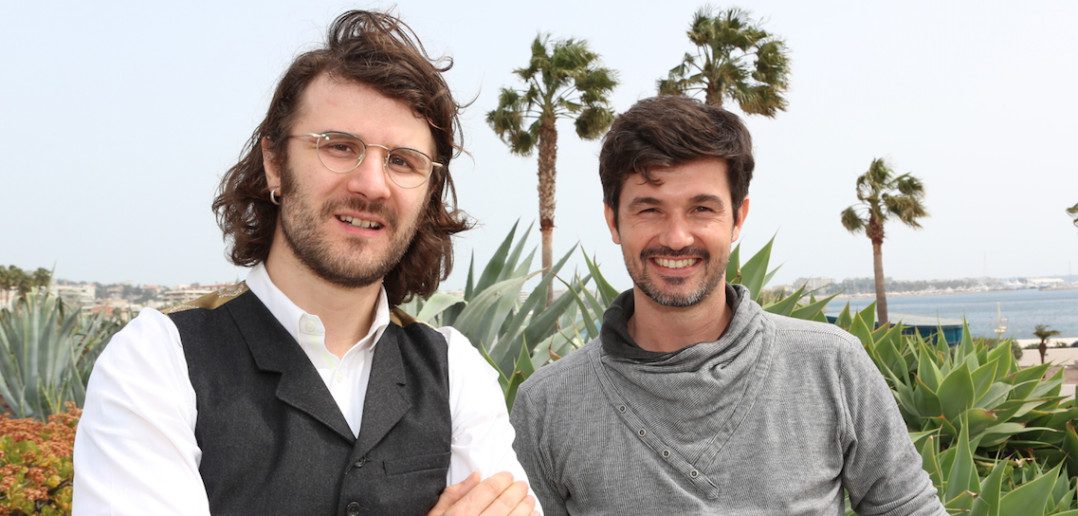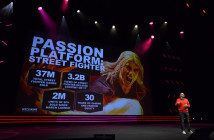This year, for the first time, MIPTV organised a Vertical Video Competition, to search for today’s most cutting-edge producers, in the run-up to MIP Digital Fronts 2016. Submissions were opened, via a dedicated mini-site, two months before MIPTV; and two prizes were won!
Jean-Charles Granjon, of Bluearth Production (right in above photo), won the jury’s prize for the breathtaking Impact; and Julien Aubert, of Bigger Than Fiction, won the public vote, with Slow Moscow. Discover both videos below; and our interview with the two!
There’s no denying that video is increasingly consumed in vertical, rather than horizontal format — think smartphone apps like Snapchat — to the dismay of some purists. « There is a question about vertical video’s potential, » says Aubert. « People are consuming on their phones, so they could be looking for vertical content. But content is distributed on all screens now. Every kind of creativity is interesting, it’s a new form of storytelling. We’re pioneers, but I feel like we’re the only ones pioneering! »
« The way we behave is mainly horizontal, » says Granjon. « But some subjects make sense in the vertical dimension. Diving, like in Impact, is an obvious subject, but when we escape from conventional dimensions, like space, sea or sky, that space isn’t horizontal anymore, so we have a choice to make. It’s just a question of choice. But of course, the broadcast environment is horizontal. »
« For now, Snapchat is the only major vertical broadcaster, » says Aubert. Indeed, that’s how Slow Moscow came about. France’s Eden Doc were filming an eponymous documentary, with slowed-down dancers on a backdrop of an accelerated Moscow. Broadcaster France 4 asked Aubert’s team to provide a second-screen activation for the programme; « vertical allowed us to give a new perspective, » he explains. The footage was then posted as Snapchat stories, so were only visible for 24 hours.
IMPACT from Bluearth production on Vimeo.
Impact, on the other hand, came about initially for technical reasons: « we had a new camera casing that allowed us to shoot underwater in 4K, » says Granjon. The film uses lots of new camera technology for just 3 mins, so it was experimental. Then we decided to give ourselves an even bigger challenge by shooting it vertically. Underwater, it wasn’t too difficult, but we did have to think about the overall storytelling differently. Everyone knows horizontal cinema language: we’re always looking from left to right and up to down. » As such, vertical video requires a totally different and new grammar.
So what’s next for our two producers? Aubert is working on a project called Unlock, in which « the stories people live out in their smartphones » will be animated by digital arts students in Paris. In vertical format, naturellement! His company is also « deeply experimenting with Snapchat, » a platform which, far from being a fad, is « going to be huge, » says Aubert. « It’s an anti-marketing platform (in that it provides no data), but you have such fun in there. You produce, they watch, that’s it. Soon, older people will love it too! »
In other words, could vertical video help make the world a better place? We certainly hope so!
The two winning films will be screened at MIPTV’s closing panel, Trending Topics, 14.00 (Agora). Full session details here.




